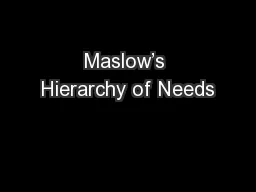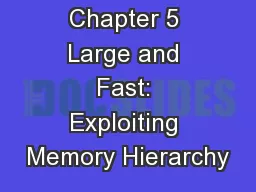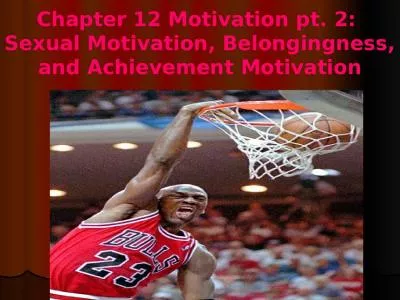PPT-Chapter 12 Motivation pt. 1: Drives, Hunger, and the Hierarchy of Needs
Author : danika-pritchard | Published Date : 2018-10-22
Motivation Guides Behavior Motivation is a need or desire that serves to energize behavior Behavior is guided by both physiological and psychological needsdesires
Presentation Embed Code
Download Presentation
Download Presentation The PPT/PDF document "Chapter 12 Motivation pt. 1: Drives, Hu..." is the property of its rightful owner. Permission is granted to download and print the materials on this website for personal, non-commercial use only, and to display it on your personal computer provided you do not modify the materials and that you retain all copyright notices contained in the materials. By downloading content from our website, you accept the terms of this agreement.
Chapter 12 Motivation pt. 1: Drives, Hunger, and the Hierarchy of Needs: Transcript
Download Rules Of Document
"Chapter 12 Motivation pt. 1: Drives, Hunger, and the Hierarchy of Needs"The content belongs to its owner. You may download and print it for personal use, without modification, and keep all copyright notices. By downloading, you agree to these terms.
Related Documents














